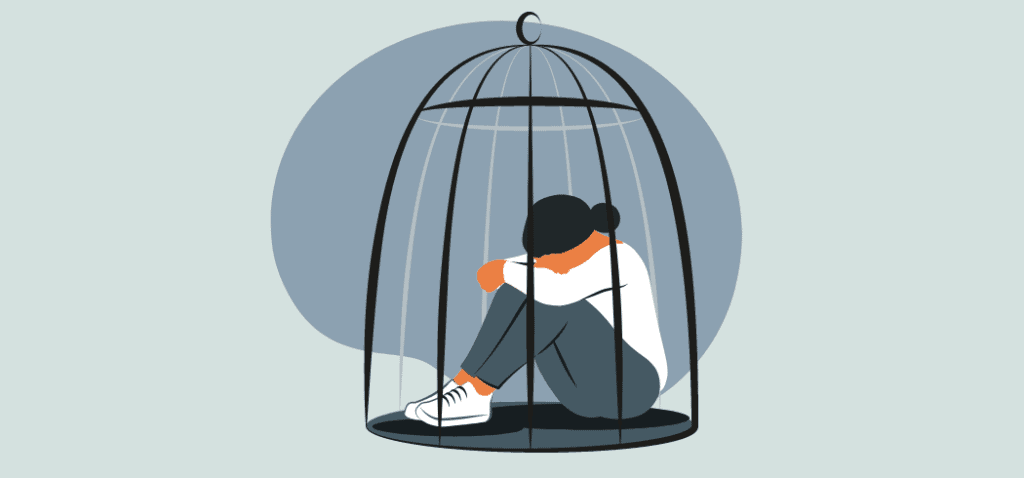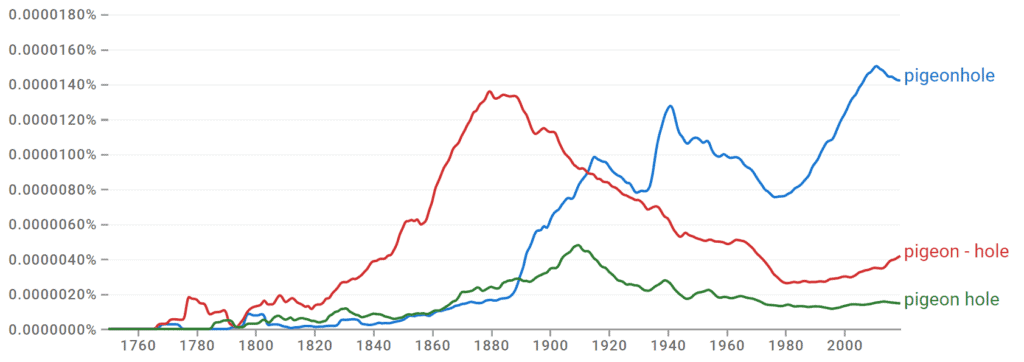Idiomatic words provide your audience with a referring allusion or analogy so they can better understand your message. These words offer a figurative meaning separate from a literal origin, but they can be a bit tricky to decipher for anyone unfamiliar with their use.
Pigeonhole is an idiom that initially referred to the nesting area pigeons kept in captivity roosted in. Still, the word has taken on various new meanings through the many years it has been in use.
Let’s look at the word pigeonhole’s origins, what it means in a modern context, and how you should use it in speech and writing.
What Is the Meaning of Pigeonhole?

Pigeonhole can be used as a noun or verb, both reflecting a general sense of narrowed viewpoints or a lack of complexities in action or description.
As a noun, a pigeonhole is a restrictive category a person or thing has been placed into. It means that details, nuances or complexities have been ignored about the subject that has been thus categorized.
For example:
- She left her job after ten years of being placed in a pigeonhole of the same day-in and day-out analysis that restricted her career growth.
- Jonathan hated that he had been placed in a pigeonhole through various research publications and felt he was passed over for more interesting work because of it.
As a verb, to pigeonhole something or someone means to place it (or them) into a restrictive category. This meaning can double as a way to describe the laying aside of something or a mental label for future consideration.
For example:
- She considered the information that had been presented and mentally pigeonholed it for when she could give it further thought.
- Monica made the grave error of pigeonholing her intern’s access to data, leading to incomplete reports that had to be rewritten.
Is It Pigeon Hole or Pigeonhole or Pigeon-Hole?

Pigeonhole is a closed compound word, which is a word derived from two or more separate words used together without a space or hyphen to create another word. Compound words are new words that have a different meaning from the definitions of the original words. In this case, pigeon hole became pigeonhole, pigeonholed and pigeonholing.
Even though pigeonhole is the correct spelling, pigeon-hole was an early adaptation of pigeon hole when used as an adjective to modify a type of desk storage area and can still be seen in use today.
Pigeon hole is an incorrect spelling of the idiom and should only be used when describing the literal nesting area of a pigeon.
Pigeonhole Origins
The word pigeonhole came into use in the 1500s in a literal sense to mean a hole in which domesticated pigeons nest or to describe the hole in which pigeons could pass through to get in and out of a dovecote.
By the late 1600s, the term pigeon-hole meant a cubby hole in a writing desk where one could place letters or other papers for safekeeping. These cubbies were small and resembled the space in which pigeons nested in a cote.
In the mid-1800s, pigeonhole became a verb that meant to put something literally away, as in a desk cubby. Pigeonhole soon became used in a figurative sense to infer the laying aside of something physically or mentally for future consideration.
This use quickly led to its use as a way to create restrictive consideration or lack of complexity in thought due to the analogy between the idiom and the small space the literal definition implies.
Its first documented use in a figurative manner was printed in Blackwood’s Magazine in 1854:
[Y]ou will have an inspector after you with note-book and ink-horn, and you will be booked and pigeon-holed for further use when wanted.
Let’s Review
A literal pigeon hole was the space a domesticated pigeon used for nesting or to move in and out of a cote during the 1500s. By the 1600s, the small space was related to the small cubbies found in roll-top desks, and soon after that, an analogy between the space and figurative applications was drawn.
Enjoyed reading about this idiom? Check out some others we covered:
